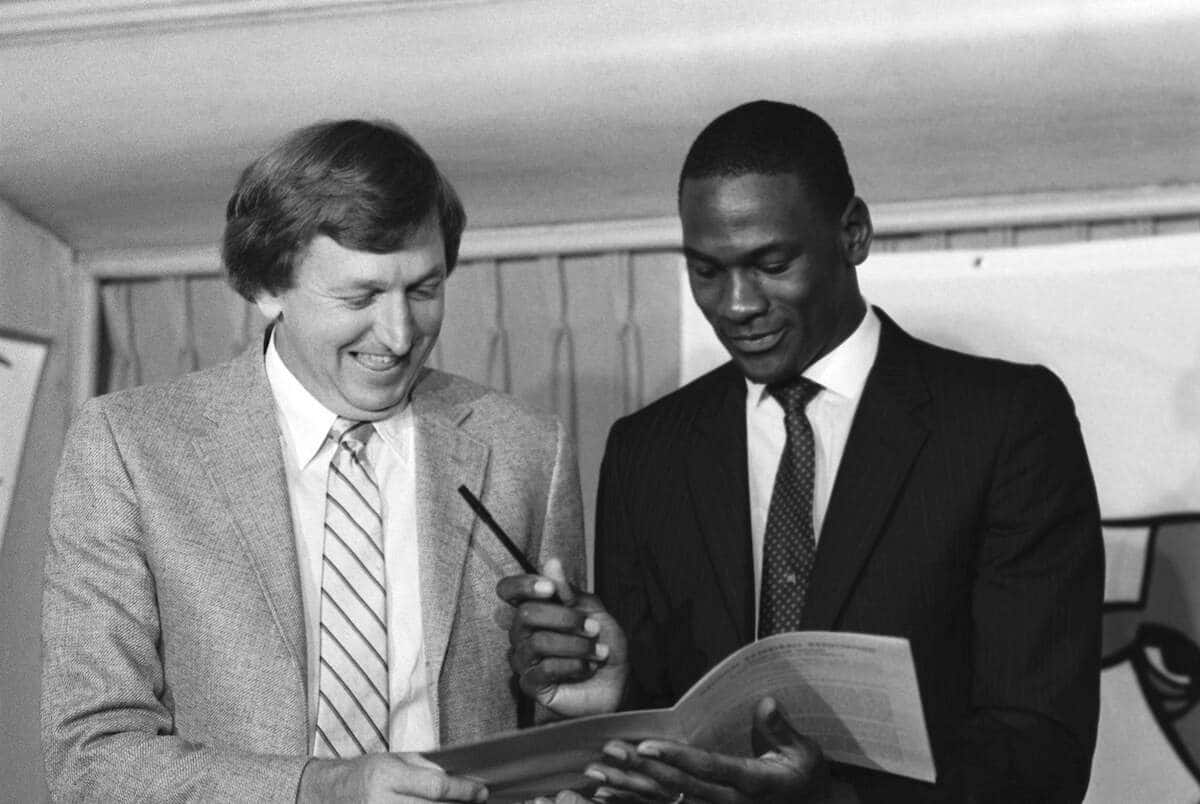NBA
Michael Jordan Tried to Sneak a Smart Clause Into His First NBA Contract

When the Chicago Bulls drafted Michael Jordan, it became one of the most important moments in NBA history. Jordan would easily become an icon in the sports world while leading the Bulls to six NBA championships in eight years.
His contract negotiations with the Bulls were always something to marvel at. Today, we look at a clause he wanted in his rookie contract that Chicago ultimately denied.
Michael Jordan’s rookie contract
Jordan signed a five-year, $6.3 million contract with the Bulls after being selected as the No. 3 overall pick in the famous 1984 NBA Draft. This deal notably did not include a signing bonus. He immediately became one of the faces of the league, winning the 1985 NBA Rookie of the Year award after averaging 28 points, six rebounds, and nearly six assists as a rookie.
A contract clause he proposed would have significantly increased the amount of money he earned during those five years.
The clause Jordan and his agent tried to add
Speaking with Cigar Aficionado, Jordan explained that he tried to have an attendance clause put into his contract, but Bulls owner Jonathan Kovler denied the request. MJ explained:
“They were averaging 6,000 people a game. So we thought, OK, we’re going to ask for an attendance clause. At the time, Jonathan Kovler was the owner. My agent, David Falk, went in and asked for that. Kovler said, ‘We’re not going to give him an attendance clause because if we draft him at the three spot, he’d better put people in the seats.’ So they never gave us an attendance clause.”
This was a smart move by the team because, during his first five seasons in the league, the Bulls’ total attendance was sixth-best in the NBA during the regular season. Outside of an injury during his second year, Jordan started every game for the Bulls during that time.
How Michael Jordan’s rookie deal compares to today’s rookie salary scale
At the time, MJ was the highest-paid rookie, averaging roughly $850,000 per season. Compare that to 2022’s No. 1 overall pick Paolo Banchero, who earned $11.1 million during the 2022-23 season, and you can see how league revenue has inflated players’ salaries.
The league has always run on a salary cap. However, with more contract restrictions, NBA teams have much more protection from losing their star players in smaller markets. This avoids situations like Shaquille O’Neal leaving Orlando as a free agent.
How much money did Michael Jordan earn during his playing career?
Although he couldn’t leverage the Bulls into approving an attendance clause, Jordan still made an unprecedented amount of money during his playing career. It was easy for him to negotiate long-term deals due to his dominance and popularity in the league during the late ’80s.
After a brief retirement to play minor league baseball, his rookie extension (eight years, $25.7 million) concluded after the 1996 NBA season.
Jordan then signed two back-to-back one-year deals worth $30 and $33 million, respectively. After his second retirement, he briefly played for the Washington Wizards on a two-year veteran minimum.
In total, he earned over $93 million in his career. That may look like a small number compared to today’s supermax contracts. However, during his 1997 and 1998 deals, he was the highest-paid player per season in the NBA.
What do you think about Jordan’s contract negotiations?
Do you think the Chicago Bulls were right in denying Michael Jordan an attendance clause? He would have seen his income increase significantly, and those clauses are rarely seen in sports.
Manny Ramirez was given an attendance clause when he signed with the Tampa Bay Rays. Other than that, though, few others come to mind. Could Jordan have one put in place during his other contract negotiations with the team? It was certainly possible, but by that point, he stated he wasn’t motivated by money — only championships.
So, would you have granted Michael Jordan the clause?
Stats courtesy of Basketball Reference and Spotrac











